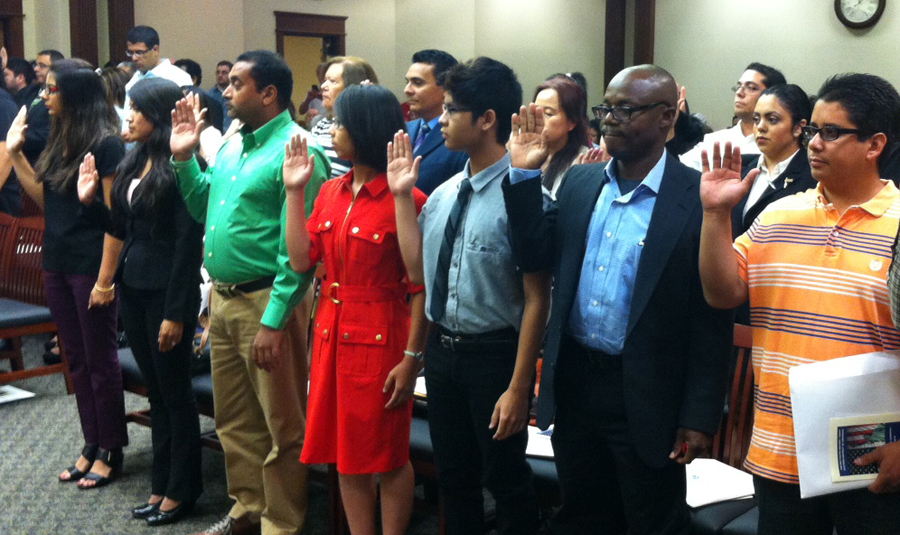By Steve Brawner
© 2017 by Steve Brawner Communications, Inc.
Wednesday saw the triumph of math over myth, in one state.
That would be Kansas, where the Legislature overrode Gov. Sam Brownback’s veto of tax increases made necessary by his previous tax cuts. We’ll see how this applies to Arkansas later in the column.
What happened in Kansas was in 2012, Brownback pushed through the Legislature huge tax cuts that weren’t accompanied by sufficient spending decreases. He said the tax cuts would spur big economic growth. They didn’t.
The state ever since has been a fiscal mess, and a cautionary tale for other governors. This year it faced a $900 million budget deficit along with an order by its state Supreme Court to increase funding for public schools.
Kansas’ previous policies were based on a commonly believed myth – that if you cut taxes, the economy will grow and the tax cuts will pay for themselves. Thus, you don’t really have to cut spending.
The math is quite different, as proven time and again. Tax cuts can spur economic growth, but not enough to make up for the lost revenue. A minus sign doesn’t become a plus sign just because a politician says it’s so. To make the equation work, it’s very simple – just cut spending too. If you don’t have the courage to do that, don’t cut taxes.
The easy decision is to cut taxes without cutting spending. That makes everyone happy until the bills come due, which can take a while. The easy decisions of the Kansas Legislature of 2012 left the Kansas Legislature of 2017 with hard choices – more taxes, less spending, more debt, and/or violating a court order. So after the 2012 Legislature played Santa Claus, today’s legislators had to be Scrooge.
The result was the Legislature passed a $1.2 billion tax increase that Brownback, still determined to be Santa Claus, vetoed. On Wednesday, legislators overrode that veto knowing they’ll have to tell their primary voters that they voted for a tax increase.
It’s ironic this all happened in Kansas, the state that produced President Eisenhower, under whose administration the federal budget was balanced three times in eight years and almost balanced every other year.
If you’re wondering why this is relevant to Arkansas, it’s because your elected officials at the state and national levels will be spending a lot of time talking about taxes and tax cuts.
At the state level, taxes were cut in 2015 and 2017, and now Gov. Asa Hutchinson and other elected officials want to further reduce rates and simplify the tax code to make the state more competitive with its neighbors. A task force is meeting to craft legislation for 2019. For the math to work, the state must eliminate deductions, but each one will have its own constituency that will fight to protect it. On Wednesday, the task force hired a consultant to determine exactly what deductions are littered throughout the code.
Arkansas has a history of being fiscally responsible and has mechanisms in place through the Revenue Stabilization Act to produce a balanced budget. But mechanisms can be overridden or worked around. The Legislature is going to cut taxes. Hopefully, it will offset all of them by closing deductions and with spending cuts, lest Arkansas look like Kansas without the “Ar.”
More concerning is what’s happening at the federal level, where President Trump wants spending increases for the military and the border wall and has proposed spending cuts that largely won’t happen. He wants to leave untouched the government’s biggest programs, Social Security and Medicare.
Meanwhile, he and other Republican leaders have been promising tax cuts that they really, really want. Speaker of the House Paul Ryan was Brownback’s legislative director in the 1990s when Brownback was in Congress.
For a long time, Washington has behaved like Kansas, with much more disastrous results. Taxes have been cut under the theory that they would pay for themselves, spending has been increased, and the national debt has reached $20 trillion, or $62,000 for every American.
Arkansas’ six members of Congress could, as has happened so often, act like the 2012 Kansas Legislature and play Santa Claus, letting a future Congress somewhere down the line be Scrooge.
Let’s hope they instead base their decisions on math, not a myth. Santa Claus isn’t real, but the bills that come due after Christmas are.
Related: $23.33 less debt

